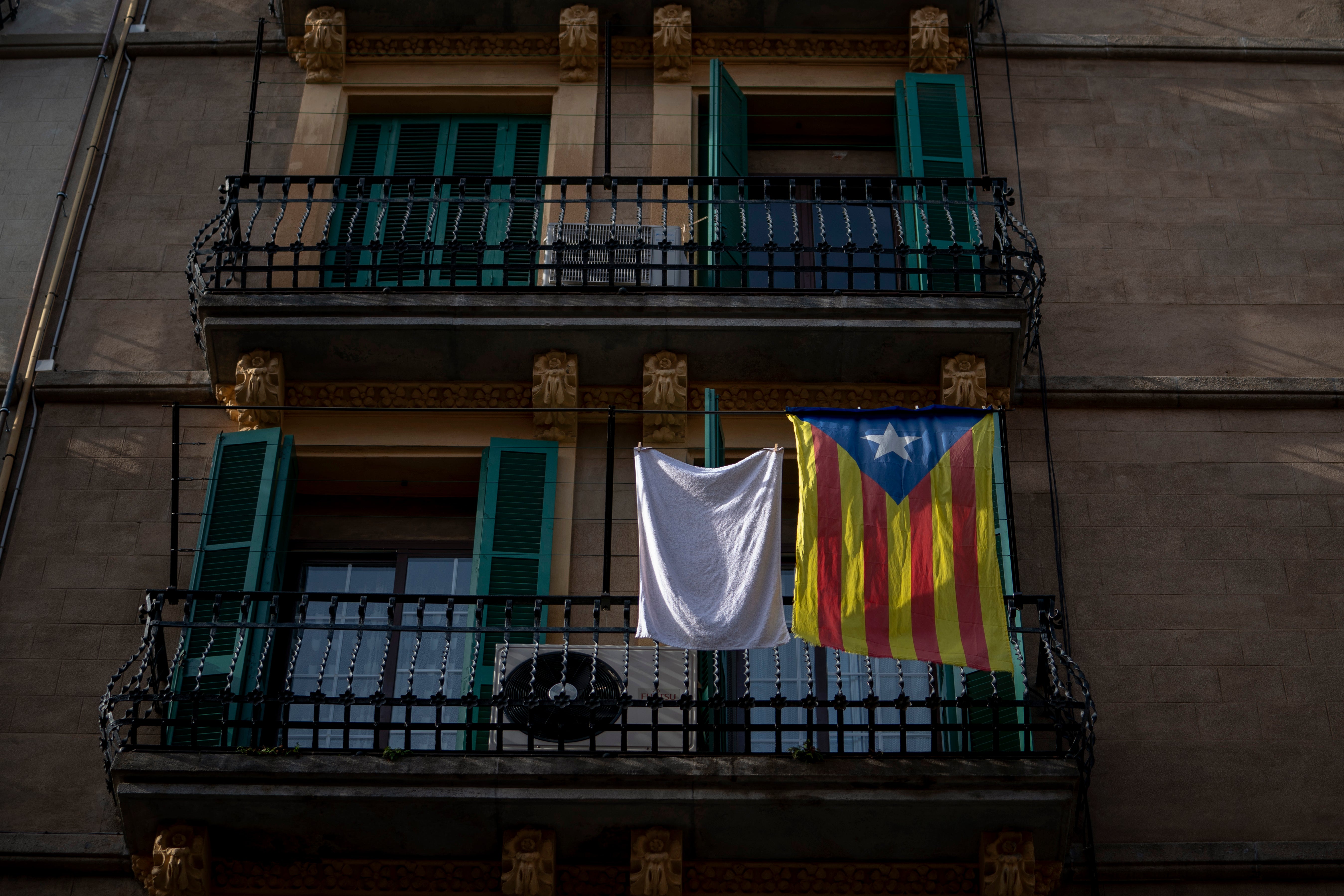With virus in rearview, campaign for Catalan vote kicks off
Political parties in Spain’s Catalonia region are scheduled to start campaigning for an election set to be held in two weeks The northeastern region has loosened a ban on traveling between municipalities to allow for political rallies with reduced attendance and mask-wearing and social distancing requirements

Your support helps us to tell the story
From reproductive rights to climate change to Big Tech, The Independent is on the ground when the story is developing. Whether it's investigating the financials of Elon Musk's pro-Trump PAC or producing our latest documentary, 'The A Word', which shines a light on the American women fighting for reproductive rights, we know how important it is to parse out the facts from the messaging.
At such a critical moment in US history, we need reporters on the ground. Your donation allows us to keep sending journalists to speak to both sides of the story.
The Independent is trusted by Americans across the entire political spectrum. And unlike many other quality news outlets, we choose not to lock Americans out of our reporting and analysis with paywalls. We believe quality journalism should be available to everyone, paid for by those who can afford it.
Your support makes all the difference.Political parties in Spain s Catalonia region are scheduled to start campaigning Thursday for an election set to be held in two weeks amid uncertainty due to vote fragmentation and a persistently high coronavirus infection rate.
The northeastern region loosened a ban on traveling between municipalities to allow for political rallies with reduced attendance and mask-wearing and social distancing requirements.
The election taking place as scheduled on Feb. 14 is not 100% certain. Catalonia's High Court needs to confirm its preliminary decision earlier this month to overturn a regional government order to delay the vote for nearly three months due to health concerns.
Like the rest of Spain, Catalonia is grappling to contain a sharp increase of COVID-19 patients amid a vaccination rollout slowed down by hiccups in the supply of shots.
Although growth in the infection rate seems to be stabilizing, experts are worried about the potential impact of new virus variants with hospitals already operating at their limits.
Catalonia's ruling coalition, which supports the region's secession from Spain, granted prison privileges Thursday to eight politicians and activists who are serving terms ranging from nine 9 to 13 years for their roles in a failed 2017 push for Catalan independence.
The regional government's move will allow some of them to campaign for their parties during the day before returning to prison to spend the night. Two months ago, Spain’s Supreme Court overturned the granting of similar privileges as “premature,”
A half-dozen political parties, divided along the lines of left and right, but also between support or opposition for the region's independence, are competing for 135 seats in the regional parliament.
Several spin-offs in the ranks of Catalan separatist parties and the emergence of the far-right on the side of remaining in Spain are likely to complicate efforts to form a governing coalition after the vote.
Salvador Illa who until this week was Spain's health minister in charge of the response to the coronavirus pandemic, is seen as the frontrunner to become Catalonia's next regional president. He is with Catalonia's Socialist Party, which has not been in power in the region since 2006.
Official polls show strong support for Laura Borràs and Pere Aragonès, who represent respectively the pro-independence Together for Catalonia and Republican Left parties that are currently part of the region's ruling coalition.